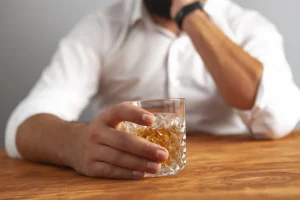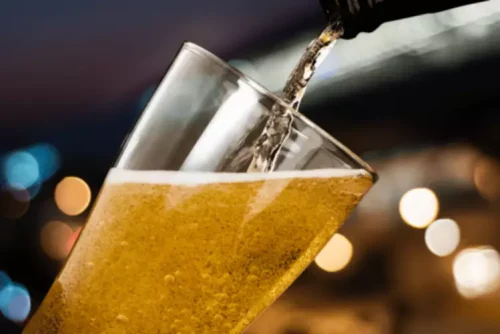- July 18, 2023
- Sober living
- Comments : 0
Protracted Withdrawal Syndrome PWS Benzodiazepine Information Coalition

Benzodiazepines (including Ativan) are considered first-choice treatment options for alcohol withdrawal. GHB withdrawal can initially be treated with high doses of benzodiazepines; refractory cases have responded to pentobarbital, chloral hydrate, and baclofen. Moving into the acute stage, which usually occurs within the first week and lasts up to a month, symptoms intensify. Symptoms of anxiety can escalate, along with panic attacks and increased heart rate. Benzo withdrawal can be a stressful process, but it is often necessary for people trying to get themselves off benzodiazepine drugs. More severe reactions or withdrawals may also be more likely when taking strong drugs either for long periods or alongside other types of medications.
Ativan for alcohol withdrawal
Your pharmacist or doctor can help if you’re having trouble swallowing pills. Over time, heavy alcohol use causes your brain to become used to alcohol’s depressant effects. In response, your brain makes more excitatory neurotransmitters (chemical messengers) to counter alcohol’s effects. If you then suddenly reduce or stop alcohol use, your nervous system becomes overactive due to an imbalance in calming and excitatory neurotransmitters. Physical symptoms might surface, such as headaches, sweating, and palpitations. These initial experiences vary in intensity among individuals but often reflect the body adjusting to the absence of the drug.
Tapering changes
Often individuals dependent on opiates should be started on methadone or buprenorphine. Our programs are designed with you in mind, offering a range of options tailored to your needs. From personalized therapy sessions to expert medication management and holistic approaches, we have the tools to support you on your journey to lasting recovery.
2. STANDARD CARE FOR WITHDRAWAL MANAGEMENT
Counseling and behavioral therapies play a pivotal role in managing benzodiazepine withdrawal. These approaches involve talking with trained professionals who help individuals navigate through the emotional and psychological aspects of withdrawal. The subacute stage occurs after the acute phase, typically within a month to several months post-discontinuation. While the acute symptoms start to diminish, some lingering effects persist.

Symptoms will be milder than acute withdrawal and they can disappear for weeks at a time. Emerging research also suggests acceptance and commitment therapy (ACT) could also have benefits during benzodiazepine withdrawal. This approach helps you learn to tolerate severe benzodiazepine withdrawal syndrome discomfort and distress, instead of avoiding it, and choose to live according to your values. If you experience unpleasant withdrawal symptoms during your taper, your care team can help you explore options to address those symptoms and get relief.

Benzodiazepine, or benzo, withdrawal happens when a person suddenly stops taking benzodiazepine drugs, which doctors do not recommend. The withdrawal symptoms, which vary in severity, typically begin within 24 hours and may last from a few days to a few months. Although I refer to protracted withdrawal as drug neurotoxicity[emphasis added], it is still a bad idea to give the doctor a diagnosis rather than to present symptoms.
6. WITHDRAWAL MANAGEMENT FOR ALCOHOL DEPENDENCE

The withdrawal response is mild, resembles a sedative withdrawal syndrome with psychotic symptoms. Severe withdrawal symptoms tend to occur in chronic users and can also present with seizures and rhabdomyolysis. Acute opioid withdrawal is followed by a protracted withdrawal phase that lasts for up to six months and is characterised by a general feeling of reduced well-being and strong cravings for opioids.
It is unrealistic to think that withdrawal management will lead to sustained abstinence. Rather, withdrawal management is an important first step before a patient commences psychosocial treatment. One in five (20.6 percent) had difficulty breathing or swallowing on a protracted basis, and more than one in four (28.3 percent) reported periods of uncontrollable crying or anger.
- People who have been through acute withdrawal often say that this phase is the most difficult.
- It can occur whether or not the patient stops using the drug, although the withdrawal syndrome is usually of a more severe nature when the drug is withdrawn.
- The off-label use of Ativan for alcohol withdrawal may cause side effects that are mild or serious.
- This dose of diazepam (up to a maximum of 40mg) is then given to the patient daily in three divided doses.
- According to the British National Formulary, it is better to withdraw too slowly rather than too quickly from benzodiazepines.[67] The rate of dosage reduction is best carried out so as to minimize the symptoms’ intensity and severity.
Management of moderate alcohol withdrawal (AWS score 5-
If you’ve taken benzodiazepines at high doses for an extended period, you may experience long-term withdrawal symptoms, also called post-acute withdrawal syndrome (PAWS) or protracted withdrawal. Only 24% of patients with alcohol use disorder were ever treated.[14]. Patients who have AWS have an increased length of hospital stay and increased mortality than those who do not have AWS[17].

3. WITHDRAWAL MANAGEMENT FOR OPIOID DEPENDENCE
- Patients should be observed every three to four hours to assess for complications such as worsening anxiety and dissociation, which may require medication.
- While they can quickly relieve symptoms of anxiety and panic, these drugs pose a high risk of dependence.
- The largest factor that might predict the length of the harm is how the patient discontinued the drug (slow, controlled taper or over-rapid or cold-turkey withdrawal).
- In most cases, your doctor will reduce your dosage by 5% to 25% in the first week.
- Provide symptomatic treatment (see Table 3) and supportive care as required.
The use of Ativan for alcohol withdrawal is considered an off-label use. These factors collectively shape the benzodiazepine withdrawal experience, impacting the duration, severity, and challenges individuals face during this period. The length of time someone has been taking benzodiazepines plays a significant role in withdrawal.

